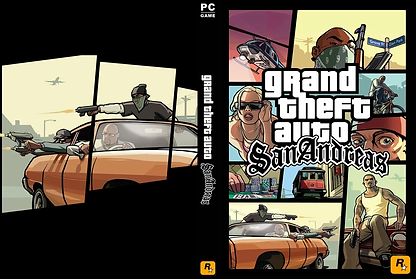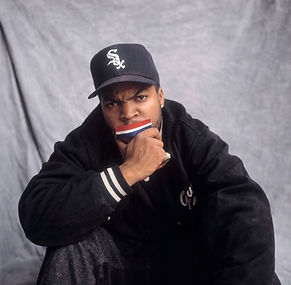
Golden Age Hip Hop (From a Gen Z Perspective)

Quick Intro
Being from Gen Z, I guess I’m supposed to be all about the new school hip hop, right? But honestly, I’ve always been drawn to things from the past. It always throws people off when I talk about 90s hip hop, especially since I wasn’t even alive during that time. Most of my friends are kind of amazed at how deep my knowledge goes for an era I didn’t live through but what this has created is me getting along with people much older than me but I just find something so real and raw about that period. It feels like a time when everything was a bit more authentic, especially in hip hop.
I think it’s part of my natural curiosity, I've always had this thing for vintage culture. Like, I have agreat liking for the old school WWF (now WWE), and I’m talking about the days when Stone Cold Steve Austin and The Rock were doing their thing. There's something about the energy and drama of it all that still feels so real. Then, there’s the whole flip phone era, Motorola rollas, I find it so nostalgic thinking about how cool they were. And don’t even get me started on pages (beepers) I mean, it's kinda funny now, but I love how it was a whole communication vibe. It’s wild to think people used to get pages, and you'd have to figure out who was trying to reach you.
I guess I’ve always been the type to appreciate things that came before me. It’s like I’m always trying to tap into those vibes that feel more genuine, whether it's music, tech, or culture. There’s just something about those eras that feels like they had more heart, you know? Even if I wasn’t around for them, I can feel the energy and authenticity through the things I love, and I’m cool with that.
Over the last 10 years, I’ve built up a solid knowledge of old-school hip hop from the late ‘80s to early ‘90s period. Despite me being from the Gen Z. generation names like KRS One, A Tribe Called Quest, N.W.A, Cypress Hill, Public Enemy, 2Pac, and Biggie became familiar to me, but my introduction to that era didn’t come from older heads putting me on.
Instead, it all started with a video game called Grand Theft Auto: San Andreas.Released in 2004 but set in 1992, San Andreas captured ‘90s culture perfectly. The radio stations in the game were filled with classic East and West Coast hip hop, and that’s how I first discovered a lot of these legendary artists.
It wasn’t just background music it was a crash course in one of the greatest periods in rap history.Fast forward to late 2021, and my love for old school hip hop got reignited by Power Book III: Raising Kanan. This show, set in the early ‘90s, doesn’t just tell a great story it fully embraces the hip hop scene and fashion of that time. This show introduced me to Scaeface, Lakim Shabazz, Main Source , while also expanding on the family artists like A tribe Called Quest, Public Enemy, Gangstar etc
Watching it reminded me how much I love that era and made me want to dive even deeper into late 80s-early 90s hip hop.
Then I stumbled on something crazy on YouTube ,this niche little community of fans making their own GTA radio stations . I’m talking about a reimaged tracklist of the in-game stations, but with updated, super curated tracklists that honored the golden age of rap. It was like finding a secret archive that nobody really talks about.
Playback FM and Radio Los Santos from GTA San Andreas were the first ones I got into. But the fan made versions? They went deeper. That’s how I discovered Stetsasonic, Nice and Smooth, Pete Rock & CL Smooth, and 2nd II None. Even artists I thought I knew, like Ice T and Cypress Hill, hit different when you heard their deeper cuts in that kind of setting.
And then I found another gem...
For GTA 4 again theres a Hip Hop radio sation called "The Classics" and just like with GTA SA, the youtube creators done the exact same thing of reimaging the tracklist. It was straight old school, raw hip hop. Nothing watered down. No fluff. That’s where I first heard Black Moon, Organized Konfusion etc. It was like stepping into a time machine, but way cooler than reading about it.
Those radio stations didn’t feel like just playlists they felt like hip hop history lessons. Real storytelling, boom bap beats, unapologetic bars the kind of music that makes you wanna sit back and listen, not just scroll past. And the fact that it was all fan made? That made it even more fire. It showed me how deep this culture runs, and how powerful music discovery can be when it's driven by real love, not algorithms.
These playlists influenced me so much that I started do my own verison and it started to actual searchh for old school rappers, songs and albums now in 2025 i have discovered a hell of a lot of artists such as....
3rd Bass, Roxanne Shante, South Central Cartel, Leaders Of The New School, Poision Clan, Onyx, The Pharcyde .
Wild to think some YouTube GTA radio remixes taught me more about rap history than half the stuff trending online.
One more Gem is on youtube theres two youtube channels dedciated to the golden age era, the first one is called "phat tape" and daily beatdrop" these channels also exposed me to artists that i had never of before.
One thing I noticed is that when people think of ‘90s rap, they usually mention 2Pac, Biggie, DMX, or Coolio but aside from 2Pac, most of them didn’t truly blow up until the mid-to-late 90s. There’s a whole wave of early ‘90s artists and songs that don’t get the same recognition, even though they were just as impactful. Rappers like MC Lyte, Ultramagnetic MCs, Naughty By Nature, Ice-T, A Tribe Called Quest, Showbiz & AG, Bone Thugs and Harmony, and Scarface played a huge role in shaping hip hop, but they don’t get talked about nearly as much as the more mainstream names.
That’s why on this website, we’re going to dive into those underrated artists the ones who helped lay the groundwork for the golden age but don’t always get their flowers.












The artists I mentioned such as MC Lyte, Ultramagnetic MCs, Naughty By Nature, Ice-T, A Tribe Called Quest, Showbiz & AG, EPMD, and Scarface etc, might not always be in the mainstream conversation, but their influence is all over hip-hop today. From lyrical content to production styles, these artists helped shape the foundation of modern rap in ways people don’t always realize.
Lyrical Content & Flow
-
MC Lyte paved the way for women in hip hop, proving that female MCs could go bar for bar with the best. Her sharp storytelling and nononsense delivery influenced artists like Nicki Minaj, Cardi B, Rapsody, and even Lauryn Hill.
-
Ultramagnetic MCs, led by Kool Keith, pushed lyricism into abstract, experimental territory. His obstract wordplay and unpredictable flows inspired rappers like Eminem, MF DOOM, and even Kendrick Lamar, who all embrace a more unconventional, technical style of rapping.
-
Bone Thugs utilised melodic hooks and harmonies, adding a whole new dimension to rap that wasn’t really explored by other acts at the time. Their ability to mix street storytelling with that musical, almost choir-like delivery paved the way for artists like Travis Scott, Future, and Young Thug, who blend rap with more melodic and atmospheric elements.
-
Ice-T’s early work with producer DJ Evil E and his use of minimalist, menacing beats shares similarities with the beats used in modern drill. Drill producers like Chopsquad DJ, G Herbo, and others have incorporated that dark, almost haunting instrumental feel, which Ice-T helped establish in the late '80s.
-
Scarface brought emotional depth to gangsta rap in a way that few had done before. His introspective, storytelling-driven style had a massive influence on artists like 2Pac, JAY-Z, and even Kanye West, who often explore personal struggles in their music.
-
Mobb Deep introduced a dark, haunting sound that perfectly matched their gritty, raw lyrics. Their beats were minimal and atmospheric, with eerie piano loops and heavy drums, setting the stage for the kind of sound that dominates in drill music today. Pop Smoke and Lil Durk, among others, draw from Mobb Deep’s ability to create a moody atmosphere while staying lyrical.
-
Compton's Most Wanted, led by MC Eiht, brought an unapologetically West Coast sound that was as menacing as it was precise. Their production, which often had a laid-back yet hard-hitting vibe, can be traced in the music of today's West Coast artists like YG and The Game. Their gritty narratives about street life and survival still resonate in the stories told by modern gangsta/drill rappers.
Production & Beat Influence
-
A Tribe Called Quest changed hip hop production forever by blending jazz samples into their beats. Their warm, smooth sound laid the groundwork for producers like J Dilla, Madlib, and even Kanye West, influencing artists like Tyler, the Creator and Cordae.
-
Showbiz & AG were pioneers in that grimy, boom-bap production style that became a staple of East Coast hip-hop. You can hear their influence in artists like Griselda (Westside Gunn, Benny the Butcher, Conway the Machine), who still use that classic, hard-hitting New York sound today.
-
Ice Cube's beats were tough and cinematic, especially after he left N.W.A. He worked with producers like Dr. Dre, creating heavy, atmospheric sounds that fit his street storytelling. Albums like AmeriKKKa’s Most Wanted had deep bass and moody beats that still influence today’s trap and drill music. Modern producers like Metro Boomin and London on da Track use similar hard hitting beats, giving space for raw lyrics.
-
The Pharcyde’s debut album featured fun, jazzy, and experimental beats. Their sound was chill and laid back, being different with the harder West Coast styles. Their production style influenced artists like Kendrick Lamar, Mac Miller, and Tyler, the Creator, who mix introspective lyrics with unique, jazzy beats. Tyler's albums Flower Boy and IGOR especially reflect The Pharcyde’s approach of blending relaxed beats with deep lyricism.










